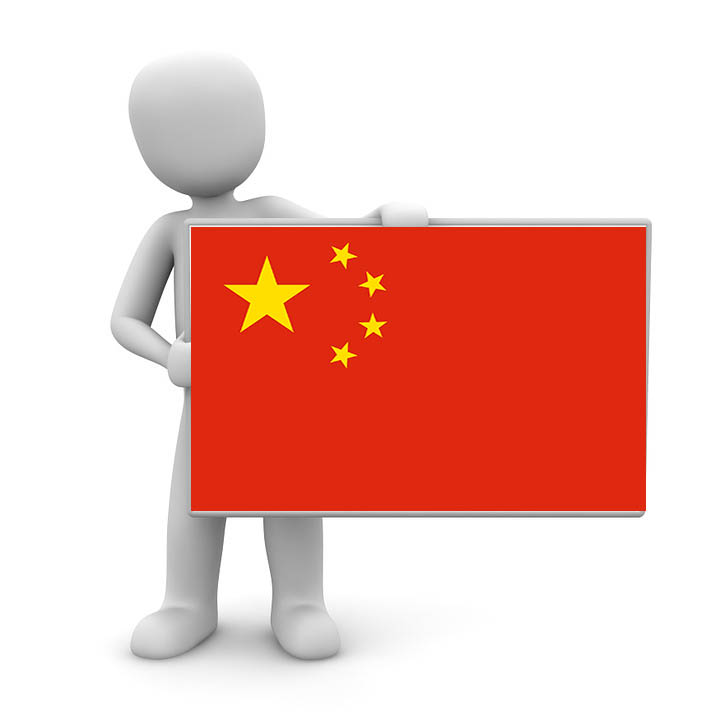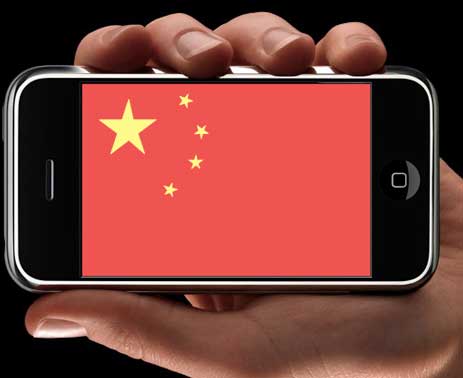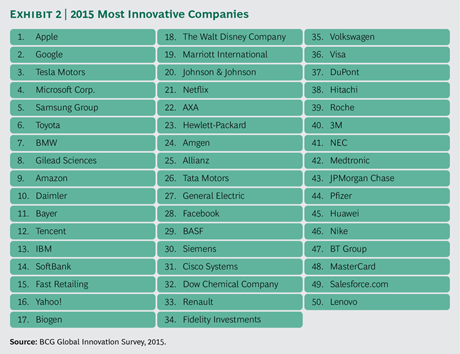My Presentation for IPI in Munich on the Chinese Patent System and Why the World Should Care2/29/2016
Many are noting that Chinese handset makers are achieving great success in China. For instance, see here where the following assertion is made:
"Along with other Chinese phone makers such as Huawei and Xiaomi, Chinese brands have surpassed Samsung in China and are encroaching on Apple’s turf. In the coming years, analysts forecast that these cheap Android phones with not-so-cheap features will likely attract more budget-conscious customers in Europe and even in Samsung’s and Apple’s home markets, South Korea and the United States." Chinese handset makers have indeed been gaining ground for years, but to take the next step, they will need to leverage patents. Not patents in the US or Europe, but patents in China. This will be a necessary step before great success in foreign markets forecasted by the referenced article can be achieved. Why are Chinese patents needed? Because Apple and Samsung have their US and European patents aimed directly at the Chinese companies for when they are considered a threat. So if the Chinese handset makers encroach on Apple and Samsung's Western markets, it makes sense that they would hit the Chinese companies with all they have in that jurisdiction. Catching up to these behemoths in numbers of patents in the US or Europe is nearly impossible. But the Chinese companies have a secret weapon: China. As I pointed out here, China has developed in a short time what I believe is the best patent litigation venue in the world for creating market leverage. That is because in less than a year, a party can get an injunction not just on infringing sales in China, but also any products manufactured and exported from China. So the Chinese companies could effectively get a world-wide injunction in less than a year while Samsung and Apple are only beginning the US and European processes. Germany is fast, too, but only protects the German market. A great market, to be sure, but not the proverbial gun to the head that is the Chinese sales and manufacturing market. And I do not imagine that these Chinese companies would have a problem winning in China. Basically, to be allowed to compete fairly in the business markets in other countries, Chinese companies need to be able to enforce their patents in China. That is, to keep the lawyers at bay, they need to preemptively hire lawyers so that everyone has an interest in avoiding mutual assured destruction. It is a brave, new world. And that world is more and more revolving around China. In BCG's top 50 list of most innovative companies in 2015, 29 companies were from the US, 11 from Europe, and 10 from Asia.
There were three companies from China: Tencent ranked 12th, and Huawei at 45th, while Lenovo at the 50th. The report and analysis is available at https://www.bcgperspectives.com/content/articles/growth-lean-manufacturing-innovation-in-2015/# "Protectionist, biased, anti-foreigner: those are kinds of labels that are often attached to China’s IP enforcement system by rights holders from outside of the country. For many, the prospect of becoming embroiled in litigation in China is one to be approached with trepidation – or not to be approached at all, as far as is possible.
However, there is evidence to suggest that the reality on the ground in China is actually not as bad as the scare stories would lead us to believe. More to the point, data on patent litigation in China’s courts may actually highlight it as a favourable jurisdiction for foreign entities to assert their patents . . ." For more, see http://www.iam-media.com/Blog/Detail.aspx?g=0051867c-808f-4bfc-94c5-c20c3941b679  Every company anywhere – if large enough – must engage in China, whether because of the huge manufacturing capability, the best-in-class scientific minds, or the second largest sales market in the world. It is no secret that China takes a nationalist approach to most things. This includes its technology industry as well as intellectual property protection. Indeed, this nationalism has led to China making remarkable strides in growing its economy and international significance in a very short period of time. The key to leveraging the China experience lies in managing this nationalism to forge mutually beneficial solution, especially now that China is expanding enforcement of both patent law as well as its anti-monopoly laws. And yes, these are in conflict to a large degree. In Chinese philosophy, yin and yang (阴 and 阳) describe how opposite or contrary forces are actually complementary, interconnected, and interdependent in the natural world, and how they give rise to each other as they interrelate to one another. The yin yang shows a balance between two opposites with a portion of the opposite element in each section. In modern China, foreigners should take note that to take the good, you must also input good. Otherwise if you only take the good, eventually you will receive the bad. In China, you will often hear the the term “win-win” (双赢 or shuāng yíng) used. It denotes a desire to achieve resolution that provides for the collective good. For the purposes of foreign companies working with China or its industries, this means being a “friend of China.” Lu Wei, chief of the State Internet Information Office in Beijing, has explicitly warned that foreign companies should not expect to simply make money from China without being its “friend”. The penalty for not complying can be harsh. In the case of my former employer, Qualcomm, the penalty came in the form of a $975 million fine, plus a cap on certain royalty rates. The Chinese investigation into allegedly unfair royalty rates charged to Chinese companies subsequently led to similar investigations in South Korea, Europe, and even the US. Not being a friend to China can punish a company in other parts of the world as well. In my opinion, and I certainly do not speak for Qualcomm, the company’s royalty rates have always been very fair. In the beginning, when they had virtually all patents on CDMA technology, Qualcomm could have taken a high-royalty, litigation-first attitude about protecting its patents. Instead, they decided to adopt a low-royalty, rarely-litigate strategy. This seemed to be the right move given that suing one’s customers is generally not a great idea for business. Nonetheless, and despite the fact that Qualcomm helped build the mobile industry in China, the company has lost over a third of its stock value largely due to the Chinese investigation and its progeny. So, if a company does the right thing, and even helps build an industry, but then gets punished, how can a company ensure it does not run afoul of China’s anti-monopoly efforts? Quite simply, there is no guarantee. However, there are steps one can take to try to maintain a symbiotic relationship. First, be humble. Don’t be a jerk. Chinese culture is one of humility and respect. Many American companies make the mistake of coming into China like a cowboy, and aggressively trying to grow the businesses, often at all costs. This is not going to work, and will, in time, backfire. My advice is to listen a lot, say little, and be respectful in all dealings, whether business or personal. Chinese culture does not permit development of business relationships at the same speed as in the West. In fact, your first meeting may not even discuss business, or at least very little. Second, take time to build good relationships. As mentioned, these take longer, but China is built on “guan xi” (关系) or “relationships.” The good news is that after you have finally developed trust and true friendship, these relationships will last much longer than those in the West. In the world of law firms in the US and UK, clients now leave at the drop of a hat. Anything that goes wrong can be the cause of a client leaving. In China, this is not the case. Clients will usually take an interest in continuing to build the friendship after the initial bridge is built. This makes more business sense than the American way, as it takes much time and money to replace internal company knowledge and protocols with the new service provider. Keep in mind that although good lawyers will always “paper” the deal, in China, the actual meeting of the minds is more important than any contract. China is a culture of honor, and good businesspeople, will generally want to uphold the deal as they understood it. The job of the lawyer is to make sure the paper matches that understanding. Third, always think about China. The people. The industry. The government. This must be an overarching concern in any major decision. The path to success is to create a win-win for China. That means making sure that the Chinese people, their businesses, and their government benefit. I am NOT talking about corruption of any kind. Rather, I am talking about making sure that anything negative that is created is countered by a positive. For example, Chinese patent litigation is growing very quickly, so much so that foreign companies are using the court system in China to sue other foreign firms, and even Chinese firms. The statistics say that the win rates for foreigners, even against Chinese companies, are at least as good as for Chinese plaintiffs. But there are still relatively few foreign-brought cases. And even foreign defendants employ Chinese workers, so there has to be some “good” to equal the “bad” of putting Chinese employees out of work. To ensure that foreign plaintiffs continue to receive fair treatment in Chinese court, they will need to “be a friend to China.” This could mean investing in Chinese tech startups, setting up technology incubators, working with universities, or anything that gives back to China. For instance, foreign companies can team up with Chinese companies to give them a business advantage. Contributions can be financial, or strategic, by providing much-needed advice on how to manage and leverage IP. China now has the minds and the money, but still lacks the experience from the West to commoditize and monetize patents. By building relationships with companies and schools that will foster the next stage of innovation in China, foreign companies can help China get to where it wants to be: an innovation-driven economy. The ways of creating consortiums to benefit China are as many as the many business and other opportunities in China: limitless. But as China’s leaders readily admit, foreigners must be ready to contribute. And this is only fair. China has a lot to offer foreigners, but it should get something back. This is the duality or equilibrium that has been China since the beginning. |
Welcome to the China Patent Blog by Erick Robinson. Erick Robinson's China Patent Blog discusses China's patent system and China's surprisingly effective procedures for enforcing patents. China is leading the world in growth in many areas. Patents are among them. So come along with Erick Robinson while he provides a map to the complicated and mysterious world of patents and patent litigation in China.
AuthorErick Robinson is an experienced American trial lawyer and U.S. patent attorney formerly based in Beijing and now based in Texas. He is a Patent Litigation Partner and Co-Chair of the Intellectual Property Practice at Spencer Fane LLP, where he manages patent litigation, licensing, and prosecution in China and the US. Categories
All
Archives
February 2021
Disclaimer: The ideas and opinions at ChinaPatentBlog.com are my own as of the time of posting, have not been vetted with my firm or its clients, and do not necessarily represent the positions of the firm, its lawyers, or any of its clients. None of these posts is intended as legal advice and if you need a lawyer, you should hire one. Nothing in this blog creates an attorney-client relationship. If you make a comment on the post, the comment will become public and beyond your control to change or remove it. |







 RSS Feed
RSS Feed